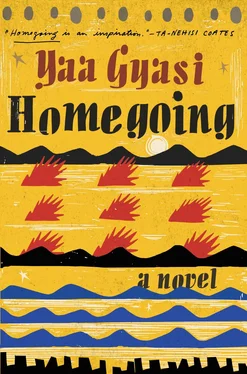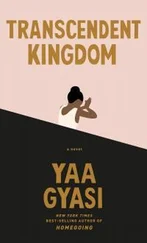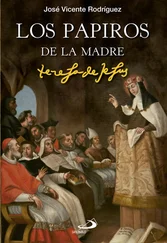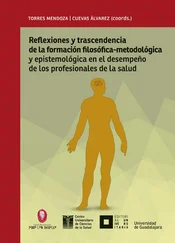“I ain’t like that no more,” H said. Though he had no scar on his neck from that day the pit boss had sliced him, he still ran his hands there from time to time as a reminder that a white man could still kill him for nothing.
“Oh you ain’t like that, huh? C’mon, H. We fightin’ for things that you could use too. Ain’t like you got anybody to keep you company in this here house you buildin’. Union might do you some good.”
—
H sat in the very back of the first meeting he ever went to, his arms folded. At the front of the room a doctor spoke to them about black lung disease.
“The mineral dust that covers the outside of your bodies when you leave, well, that gets inside your body too. Makes you sick. Shorter hours, better ventilation, those are things that you should be fighting for.”
It had taken about a month, but it wasn’t just Joecy’s talk that finally convinced H to join. The truth was, he was scared of dying in the mines and his freedom had not erased his fear. Every time H was lowered down into the mine, he would picture his own death. Men were getting diseases he had never before seen or heard of, but now that he was free he could make the danger worth something.
“More money’s what we should be fighting for,” H said.
A murmur started to pass through the room as people craned their necks to see who had spoken. “Two-Shovel H is here,” “Is that Two-Shovel?” He’d gone so long without attending a meeting.
“Ain’t no way to keep from breathing the dust, doc,” H said. “Hell, most the men in this room are halfway to death as it is. Might as well get paid ’fore we go.”
Behind H, the meeting door started to rustle and a child who’d had his leg blown off hobbled in. He couldn’t have been more than fourteen years old, but already, H felt like he could picture the entire course of that boy’s life. Maybe he’d started out as a breaker, sitting hunched over tons of coal, trying to separate it from slate and rock. Then maybe the bosses moved him up to spragger because they saw him running outside one day and knew that he was fast. The boy had to run along the cars, jamming sprags in the wheels to slow the cars down, but maybe one car didn’t slow down. Maybe that one car jumped the track and took the boy’s leg and his whole future with it. Maybe what saddened the boy most after the doctor sawed it off was the fact that he wouldn’t ever get to be a first-class miner like his father.
The doctor looked from H to the crippled boy and back again. “Money’s nice, don’t get me wrong. But mining can be a whole lot safer than what it is. Lives are worth fighting for too.” He cleared his throat, then continued to speak about the signs of black lung.
On his walk home that night, H started to think about the crippled boy, how easy it had been for H to make up his story. How easy it was for a life to go one way instead of another. He could still remember telling his cellmate that nothing could kill him, and now he saw his mortality all around him. What if H hadn’t been so arrogant when he was a younger man? What if he hadn’t been arrested? What if he’d treated his woman right? He should have had children of his own by now. He should have had a small farm and a full life.
Suddenly H felt like he couldn’t breathe, like that decade’s worth of dust was climbing up his lungs and into his throat and choking him. He hunched over and started to cough and cough and cough, and when he’d finished coughing, he stumbled his way to Joecy’s house and knocked on the door.
Lil Joe answered with sleep in his eyes. “My daddy ain’t back from the meeting yet, Uncle H,” he said.
“I ain’t here to see your daddy, son. I–I need you to write me a letter. Can you do that?”
Lil Joe nodded. He went into the house and came back out with the supplies he needed. He wrote as H dictated:
Deer Ethe. This is H. I am now free an livin in Prat City.
H mailed the letter the very next morning.
—
“What we need to do is call a strike,” a white union member said.
H was sitting in the front row of the church house where the union meetings were held. There was an endless list of problems and the strike was the first solution. H listened carefully as a murmur of agreement began to rush through the room, as hushed as a hum.
“Who gon’ pay attention to our strike?” H asked. He was becoming more vocal at the meetings.
“Well, we tell ’em we won’t work until they raise our pay or make it safer. They gotta listen,” the white man said.
H snorted. “When a white man ever listened to a black man?”
“I’m here now, ain’t I? I’m listening,” the white man said.
“You a con.”
“You’re a con, too.”
H looked around the room. There were about fifty men there, over half of them black.
“Whatchu done wrong?” H asked, returning his gaze to the white man.
At first, the man wouldn’t speak. He kept his head lowered, and cleared his throat so many times, H wondered if there was anything left in his mouth at all. Finally the words came out. “I killed a man.”
“Killed a man, huh? You know what they got my friend Joecy over there for? He ain’t cross the street when a white woman walk by. For that they gave him nine years. For killin’ a man they give you the same. We ain’t cons like you.”
“We gotta work together now,” the white man said. “Same as in the mine. We can’t be one way down there and another way up here.”
No one spoke. They all just turned to watch H, see what he would say or do. Everyone had heard the story of the time he’d picked up that second shovel.
Finally he nodded, and the next day the strike began.
Only fifty people showed up on that first day. They gave their bosses a list of their demands: better pay, better care for the sick, and fewer hours. The white union members had written up the list, and Joecy’s boy, Lil Joe, had read it aloud to all the black members to make sure it said what they thought it said. The bosses had answered back that free miners could easily be replaced by convicts, and one week later a carriage full of black cons appeared, all under the age of sixteen, and looking so scared it made H want to quit the strike if only it meant more people wouldn’t be arrested to fill in the gap. By the end of the week, the only thing both sides had agreed to was that there would be no killing.
And still, more convicts were rounded up and brought in. H wondered if there was a black man left in the South who hadn’t been put in prison at one point or another, so many of them came to fill the mines. Even free laborers who weren’t striking were being replaced, so soon more of them joined in the fight. H spent hours at Joecy and Jane’s house, making signs with Lil Joe.
“What that say?” H asked, pointing to the tar-painted wood at Lil Joe’s side.
“It say, more pay,” the boy answered.
“And what that say?”
“It say, no more tuberculosis.”
“Where you learn to read like that?” H asked. He had grown so fond of Lil Joe, but the sight of his friend’s son only made him ache for a child of his own.
The smell of the tar Lil Joe was using to write clung to the hairs in H’s nostrils. He coughed a little and a black string of mucus trailed from his mouth.
“I had a little school in Huntsville ’fore they took my daddy. When they arrested him, they said he and my whole family was gettin’ too uppity. They said that was why Daddy didn’t cross the street when the white woman passed by.”
“And what you think?” H asked.
Lil Joe shrugged.
The next day, Joecy and H took the signs out with them to the strike. There were about 150 men standing out in the cold. They all watched while the new crop of cons walked by, waiting to be lowered down into the mines.
Читать дальше

![Ally Carter - [Gallagher Girls 01] I'd Tell You I Love You But Then I'd Have to Kill You](/books/262179/ally-carter-gallagher-girls-01-i-d-tell-you-i-lo-thumb.webp)










